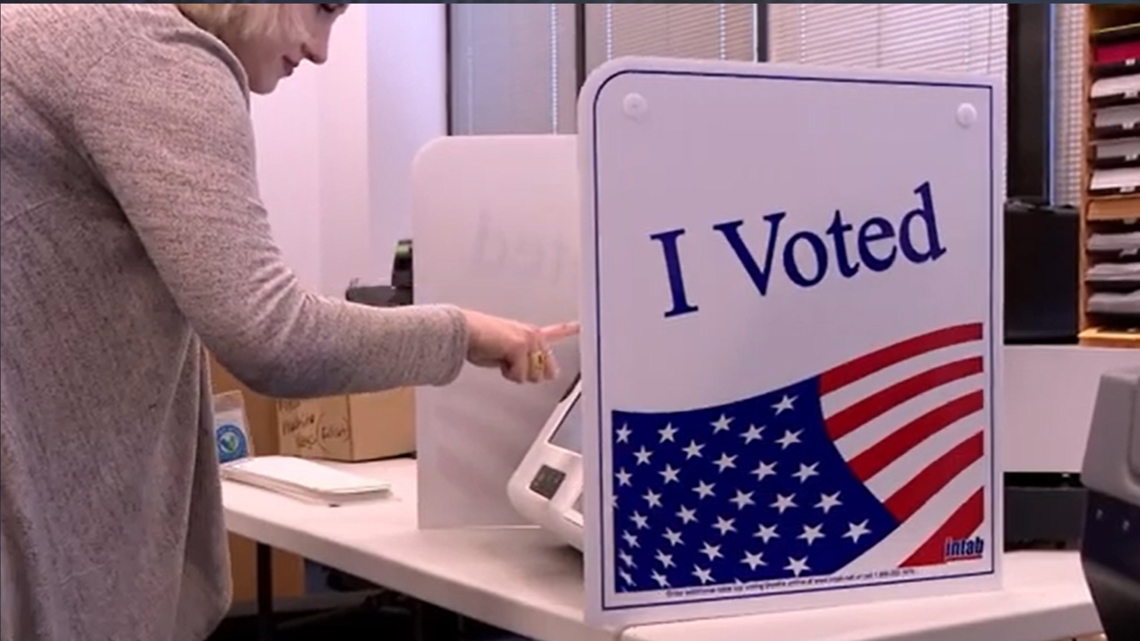The U.S. Department of Justice (DOJ) has filed a lawsuit against the state of Alabama and its Secretary of State, accusing the state of violating federal law by systematically purging noncitizen voters from its rolls within 90 days of the upcoming 2024 federal election. This legal action comes at a crucial time, as Election Day is set for November 5, and the purges have reportedly caused confusion and the potential disenfranchisement of eligible voters.
The DOJ claims that Alabama’s voter roll maintenance efforts, specifically targeting noncitizens, violate the National Voter Registration Act (NVRA). Under Section 8(c)(2) of the NVRA, states are prohibited from removing voters from registration lists within the 90-day “Quiet Period” before an election, except in cases of individual, case-by-case removal, such as death or criminal conviction.
Alabama’s Secretary of State announced the voter purge program on August 13, 2024—just 84 days before the general election. The state began sending out letters to individuals believed to be noncitizens, informing them that their registration had been made inactive. Many recipients of these letters, however, are reportedly U.S. citizens—both native-born and naturalized. These letters instructed recipients to submit proof of their eligibility to vote via an attached form.
Compounding the issue is Alabama’s deadline for voter registration. Individuals who were incorrectly flagged as noncitizens and subsequently removed from the rolls may not have enough time to correct their voter status before the cutoff for registration. The DOJ argues that this systematic voter removal is fraught with errors, which could disproportionately affect eligible voters, particularly those who lack quick access to documentation or the means to challenge the state’s errors in a timely manner.
The DOJ has emphasized that the right to vote is one of the most sacred tenets of American democracy, and federal law exists to protect it. In a statement, Assistant Attorney General Kristen Clarke of the Civil Rights Division said, “It is critical that Alabama redress voter confusion resulting from its list maintenance mailings sent in violation of federal law”. The DOJ is seeking both injunctive relief and remedial measures to ensure that all eligible voters remain on the rolls ahead of Election Day.
The lawsuit highlights the importance of the “Quiet Period” provision in the NVRA. This provision is designed to prevent last-minute voter purges, which can often be plagued by inaccuracies and confusion. Federal law does allow states to maintain their voter rolls and remove ineligible voters, but such efforts must be completed well in advance of an election to avoid chaos at the polls.
Alabama’s officials argue that the purges were necessary to ensure election integrity by removing noncitizens who are ineligible to vote. Critics of the DOJ lawsuit, particularly conservative commentators, argue that preventing noncitizens from voting is a key component of upholding election security. Some conservative voices have even called for stricter measures, such as arresting individuals who vote illegally.
Alabama’s defense is expected to focus on its responsibility to prevent voter fraud. However, the timing of the purge and the errors that have resulted in eligible voters being flagged as noncitizens have raised concerns about whether the state’s actions may inadvertently suppress voter turnout. The legal battle will now play out in federal court, with the potential to impact Alabama’s election procedures in the immediate future and beyond.
The lawsuit could have broader implications for voter rights across the country. As the 2024 election approaches, several other states are also engaged in efforts to clean up their voter rolls, and many are closely watching the legal developments in Alabama. A ruling in favor of the DOJ could set a precedent for future enforcement of the NVRA’s Quiet Period, compelling states to adhere strictly to federal law when conducting voter purges.
On the other hand, a decision in favor of Alabama could embolden states that have adopted aggressive voter roll maintenance programs, leading to increased purges and further legal battles over voter suppression versus election security.
As Election Day nears, the tension between maintaining secure elections and protecting voter rights is only likely to intensify. For Alabama, the DOJ’s lawsuit is a clear indication that federal authorities are prepared to step in when they believe state actions threaten the sanctity of voting rights.
This legal case underscores the delicate balance states must strike between election security and voter access, a balance that is increasingly scrutinized as the nation approaches one of its most contentious elections in recent memory.

